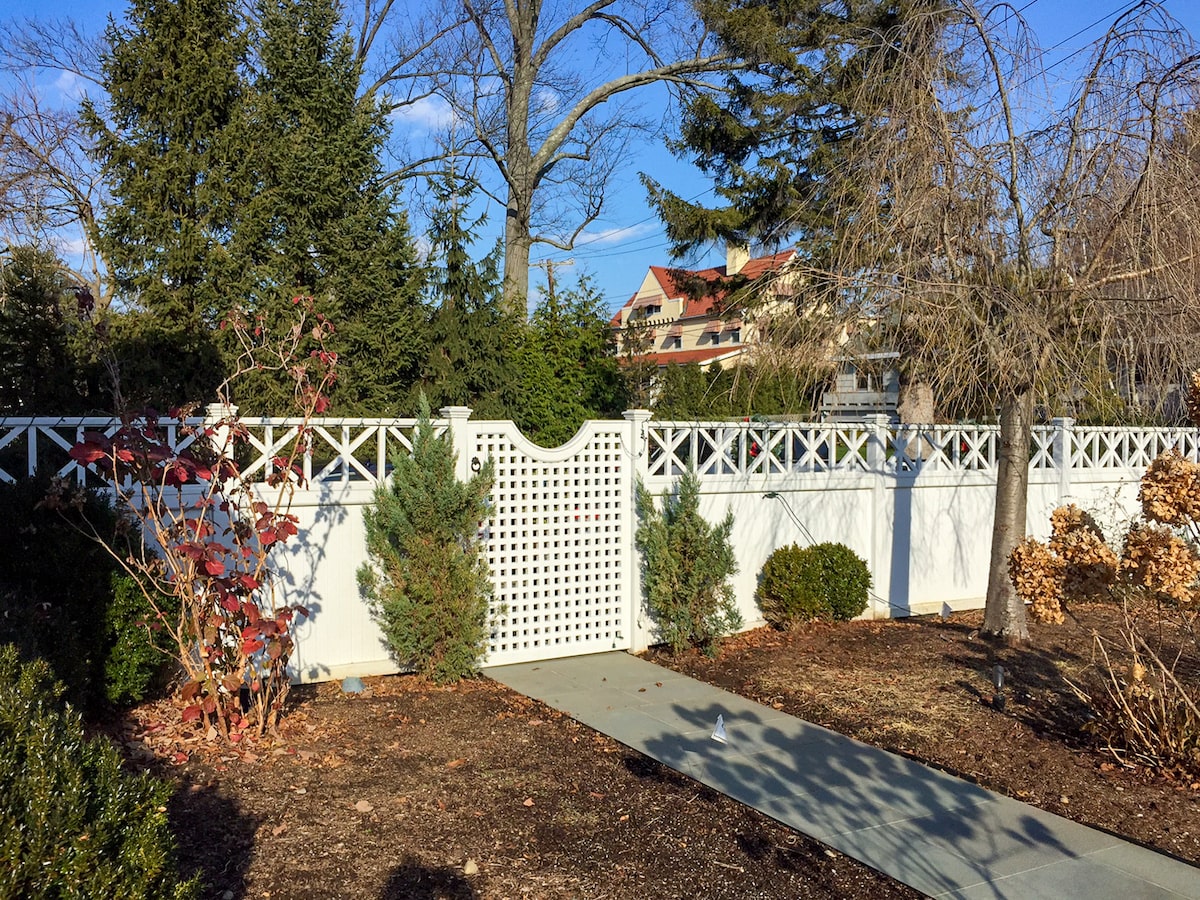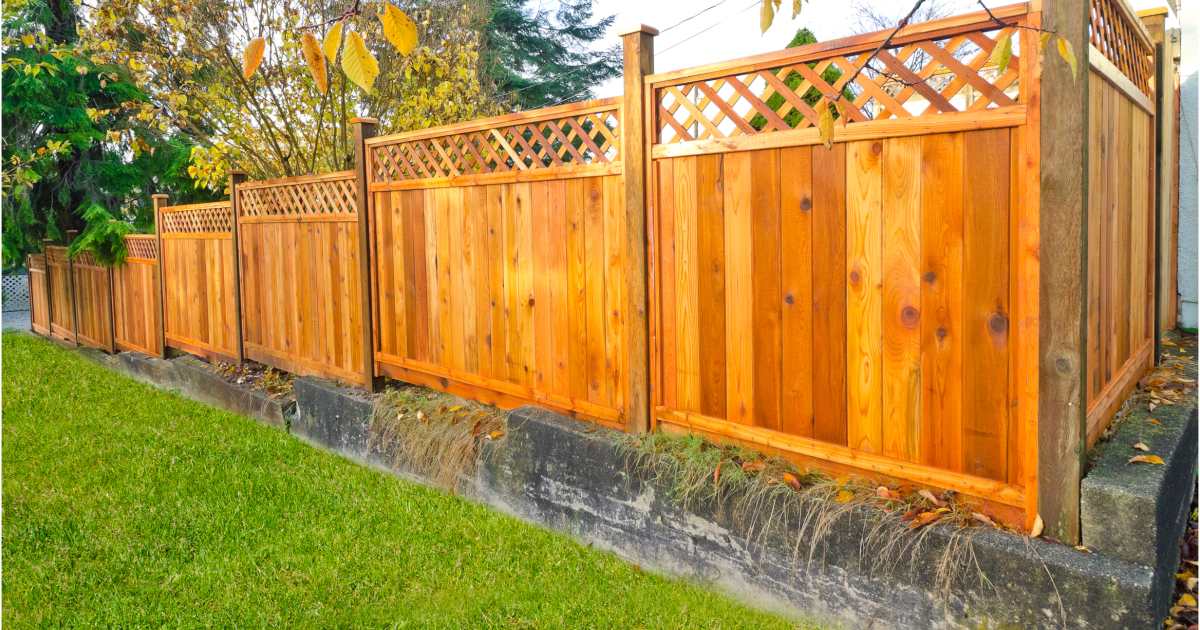All Categories
Featured
If you're taking into consideration installing a fencing around your property, comprehending the license requirements in your location is necessary. In this guide, we'll damage down the various permits you may require to set up a fence and just how to guarantee your task remains certified with neighborhood regulations.
Why Are Allows Necessary for Fence Installment? Licenses are called for to guarantee that the fence you develop adheres to local building codes, zoning laws, and safety standards. They make certain that the fence will not block utilities, traffic circulation, or develop threats for pedestrians.
![]()
Kinds of Permits You May Demand. Building Authorization. A building authorization is one of the most common demand for installing a fence. This permit makes certain that the structure you develop abide by regional safety codes and policies. If your fencing exceeds a particular elevation (typically around 6 feet), you might require to obtain a building permit. The local authorities will commonly evaluate your strategies to make sure that your fence is safe and structurally audio.
Zoning Permit. A zoning permit makes certain that your fencing conforms with these guidelines. Your fence may need to be set back a specific range from sidewalks or building lines.
Homeowners Organization (HOA) Authorization. If your residential property belongs to a house owners organization, you might require approval prior to setting up a fencing. HOAs usually have strict rules concerning the type, design, and products used for fences to preserve an uniform appearance throughout the neighborhood. The HOA might require you to send comprehensive plans or request approval before setup. Make certain you adhere to these standards to stay clear of prospective fines or fines.
Specialized Permits. Sometimes, you might need specialized allows based upon the area of your property or the nature of your fence. If your residential or commercial property is in a flood area, you might need extra authorizations to guarantee that your fencing does not block drainage or water circulation. Similarly, if you prepare to build a fence near an environmentally protected location, you may need a special permit to comply with environmental guidelines.
![]()
Energy Easements and Energy Company Authorizations. Some residential properties have energy easements, which are areas marked for utility wires, lines, or pipelines. Before setting up a fence, you should inspect if your property has an easement. Constructing a fencing within an easement might conflict with utility maintenance or damage underground lines. You might need authorization from the energy firm or local authorities before continuing with the installation.
Exactly How to Figure Out Which Allows You Need. Contact Local Authorities. The primary step in figuring out the authorizations required is to call your regional building department or zoning workplace. They can supply certain information concerning what permits are needed for your area. Many cities have online sources or sites where you can examine the requirements and even look for a permit online.
Get In Touch With a Professional Fence Professional. A regional fencing specialist is frequently accustomed to the permit process and neighborhood policies. They can help you browse the needs and ensure that your job is certified. Lots of specialists additionally handle the license application procedure on your part, saving you time and effort.
Testimonial Your Neighborhood's HOA Standards. Make certain to evaluate their standards prior to applying for any type of permits if you live in a neighborhood controlled by an HOA. The HOA might require specific designs, products, or height restrictions for fences within the area. Submit your strategies to them for authorization prior to continuing.
![]()
Repercussions of Not Getting a Permit. Setting up a fencing without the needed licenses can lead to significant consequences. You might deal with fines, be gotten to get rid of the fencing, or be called for to redesign the setup to meet code needs. Additionally, offering your home might be complicated if the fencing doesn't fulfill regional policies. Potential buyers might be reluctant to acquire a building with an unpermitted fencing, particularly if it's in infraction of zoning laws.
Verdict. Prior to setting up a fencing on your residential or commercial property, make certain you understand the local guidelines and obtain any kind of essential licenses. Structure authorizations, zoning authorizations, HOA authorizations, and specialized allows all play a crucial function in guaranteeing that your fence is risk-free, lawful, and certified.
Why Are Allows Necessary for Fence Installment? Licenses are called for to guarantee that the fence you develop adheres to local building codes, zoning laws, and safety standards. They make certain that the fence will not block utilities, traffic circulation, or develop threats for pedestrians.

Kinds of Permits You May Demand. Building Authorization. A building authorization is one of the most common demand for installing a fence. This permit makes certain that the structure you develop abide by regional safety codes and policies. If your fencing exceeds a particular elevation (typically around 6 feet), you might require to obtain a building permit. The local authorities will commonly evaluate your strategies to make sure that your fence is safe and structurally audio.
Zoning Permit. A zoning permit makes certain that your fencing conforms with these guidelines. Your fence may need to be set back a specific range from sidewalks or building lines.
Homeowners Organization (HOA) Authorization. If your residential property belongs to a house owners organization, you might require approval prior to setting up a fencing. HOAs usually have strict rules concerning the type, design, and products used for fences to preserve an uniform appearance throughout the neighborhood. The HOA might require you to send comprehensive plans or request approval before setup. Make certain you adhere to these standards to stay clear of prospective fines or fines.
Specialized Permits. Sometimes, you might need specialized allows based upon the area of your property or the nature of your fence. If your residential or commercial property is in a flood area, you might need extra authorizations to guarantee that your fencing does not block drainage or water circulation. Similarly, if you prepare to build a fence near an environmentally protected location, you may need a special permit to comply with environmental guidelines.

Energy Easements and Energy Company Authorizations. Some residential properties have energy easements, which are areas marked for utility wires, lines, or pipelines. Before setting up a fence, you should inspect if your property has an easement. Constructing a fencing within an easement might conflict with utility maintenance or damage underground lines. You might need authorization from the energy firm or local authorities before continuing with the installation.
Exactly How to Figure Out Which Allows You Need. Contact Local Authorities. The primary step in figuring out the authorizations required is to call your regional building department or zoning workplace. They can supply certain information concerning what permits are needed for your area. Many cities have online sources or sites where you can examine the requirements and even look for a permit online.
Get In Touch With a Professional Fence Professional. A regional fencing specialist is frequently accustomed to the permit process and neighborhood policies. They can help you browse the needs and ensure that your job is certified. Lots of specialists additionally handle the license application procedure on your part, saving you time and effort.
Testimonial Your Neighborhood's HOA Standards. Make certain to evaluate their standards prior to applying for any type of permits if you live in a neighborhood controlled by an HOA. The HOA might require specific designs, products, or height restrictions for fences within the area. Submit your strategies to them for authorization prior to continuing.

Repercussions of Not Getting a Permit. Setting up a fencing without the needed licenses can lead to significant consequences. You might deal with fines, be gotten to get rid of the fencing, or be called for to redesign the setup to meet code needs. Additionally, offering your home might be complicated if the fencing doesn't fulfill regional policies. Potential buyers might be reluctant to acquire a building with an unpermitted fencing, particularly if it's in infraction of zoning laws.
Verdict. Prior to setting up a fencing on your residential or commercial property, make certain you understand the local guidelines and obtain any kind of essential licenses. Structure authorizations, zoning authorizations, HOA authorizations, and specialized allows all play a crucial function in guaranteeing that your fence is risk-free, lawful, and certified.
Latest Posts
Durable Yard, Ranch, and Cattle Ranch Fencing Solutions by Montana Fencing
Published May 13, 25
1 min read
Crafting a Winning Advertising And Marketing Strategy with Full Circle Strategic Marketing
Published May 13, 25
1 min read
Raise Your Occasion with The other day's Tavern Food catering
Published May 12, 25
1 min read
More
Latest Posts
Durable Yard, Ranch, and Cattle Ranch Fencing Solutions by Montana Fencing
Published May 13, 25
1 min read
Crafting a Winning Advertising And Marketing Strategy with Full Circle Strategic Marketing
Published May 13, 25
1 min read
Raise Your Occasion with The other day's Tavern Food catering
Published May 12, 25
1 min read